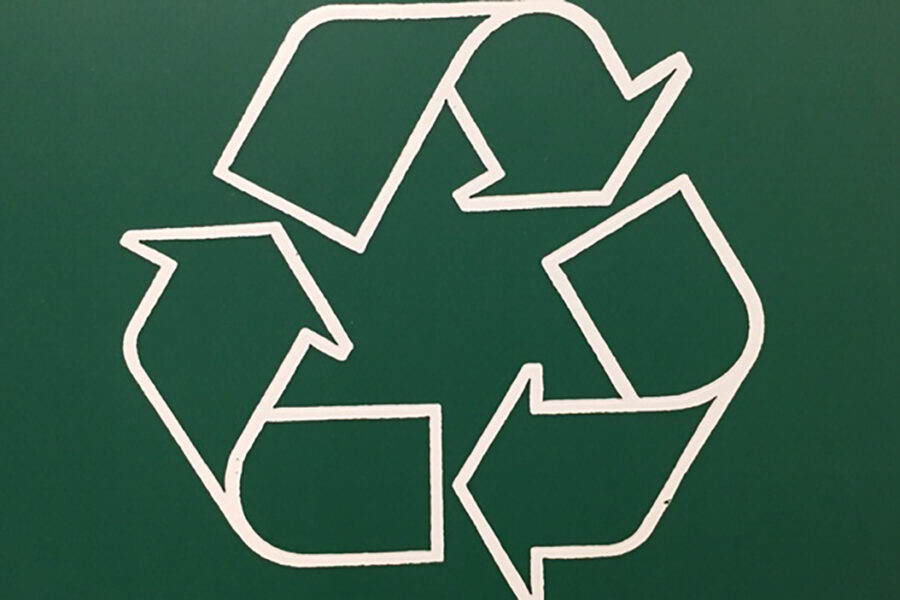The UNMC Office of Sustainability has updates to share on the med center’s waste infrastructure that will help advance its waste reduction goals.
These improvements support the medical center’s goal of achieving net zero waste, with a 90% landfill diversion rate by 2030. Staff and students can contribute by ensuring items are placed in the correct waste stream to prevent contamination, opting for reusable items, such as cups, plates and utensils, and educating others on waste reduction and proper waste sorting.
Together, these steps can make a meaningful impact on campus sustainability efforts.
Mixed recycling
Mixed recycling has been expanded to include small cardboard and paperboard items, which can now be flattened and placed in green bins along with rigid plastic and metal recyclables. To ensure effective recycling, remove any food residue before disposal. While updated signage will be installed across campus, everyone can support this transition by downloading and printing signage for bins in their spaces.
Additionally, changes have been made to the environmental services disposal process. Mixed recycling and cardboard collected inside buildings now will be placed in shared dumpsters or compactors and transported to a local materials recovery facility for sorting.
Paper recycling
Paper recycling procedures also have been refined. At Nebraska Medicine, in-patient and clinic spaces will have daily paper recycling collection, while office spaces will utilize centralized community bins for mixed paper recycling.
At UNMC, office spaces will rely on community bins, with blue deskside bins remaining available for convenience. However, staff will be responsible for transporting their mixed paper recycling to community bins within their departments.
Trash disposal for non-recyclables
For non-recyclable trash disposal, Nebraska Medicine office spaces will use centralized community bins, with environmental services supplying trash bin liners. At UNMC, similar changes will be implemented, though environmental services will not provide liners. Staff must transport their trash to designated community bins within their departments.
Community bins
A key component of these updates is the transition to community bins — centrally located waste bins accessible to everyone in a shared space. This system ensures items are disposed of correctly, reduces costs associated with plastic liners and encourages movement throughout the workday, promoting overall wellness.
For more information or to get involved, visit the LiveGreen Ambassadors webpage or join the LiveGreen Ambassadors Employee Resource Group. With questions, email environmental services.
